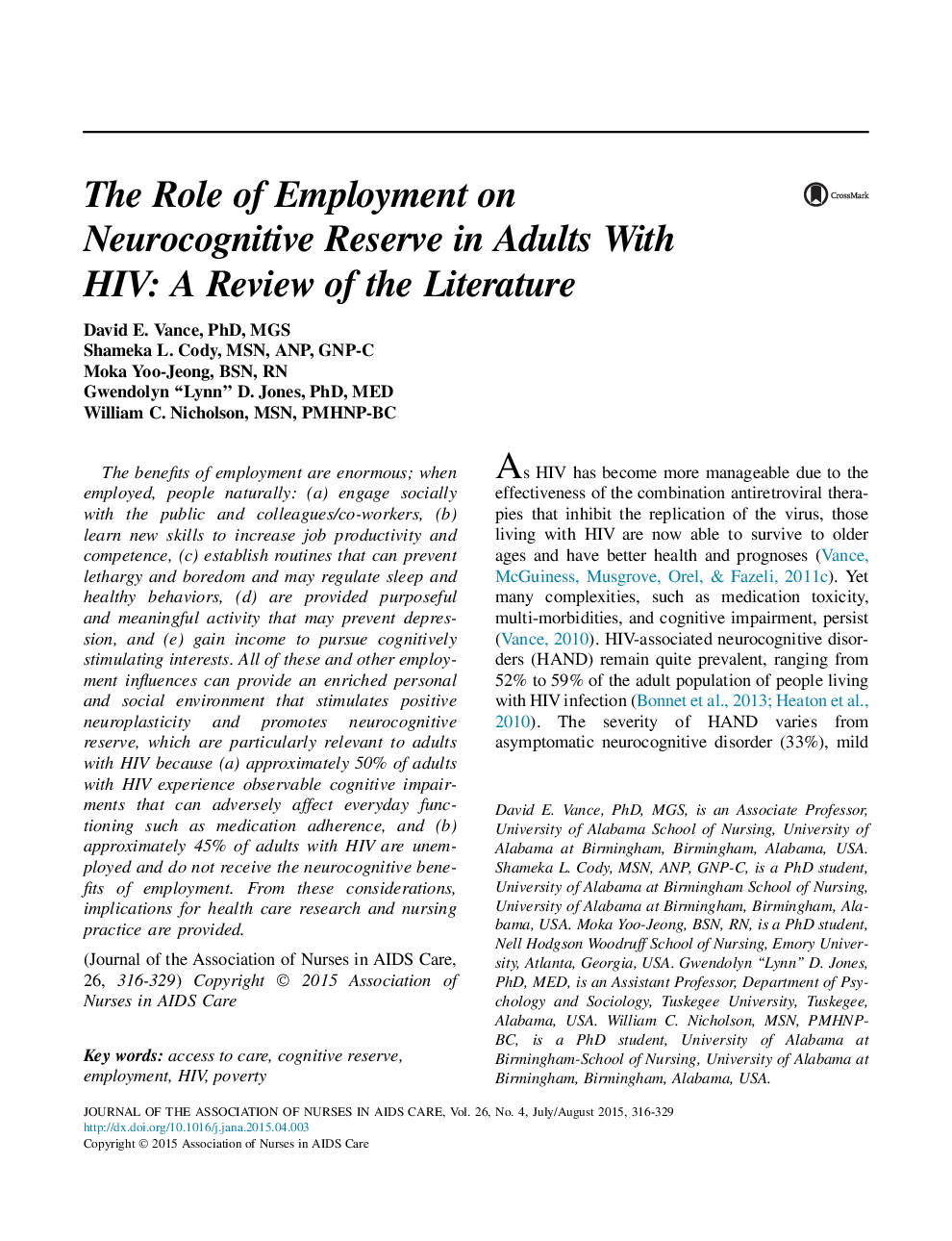| کد مقاله | کد نشریه | سال انتشار | مقاله انگلیسی | نسخه تمام متن |
|---|---|---|---|---|
| 2660217 | 1564171 | 2015 | 14 صفحه PDF | دانلود رایگان |
The benefits of employment are enormous; when employed, people naturally: (a) engage socially with the public and colleagues/co-workers, (b) learn new skills to increase job productivity and competence, (c) establish routines that can prevent lethargy and boredom and may regulate sleep and healthy behaviors, (d) are provided purposeful and meaningful activity that may prevent depression, and (e) gain income to pursue cognitively stimulating interests. All of these and other employment influences can provide an enriched personal and social environment that stimulates positive neuroplasticity and promotes neurocognitive reserve, which are particularly relevant to adults with HIV because (a) approximately 50% of adults with HIV experience observable cognitive impairments that can adversely affect everyday functioning such as medication adherence, and (b) approximately 45% of adults with HIV are unemployed and do not receive the neurocognitive benefits of employment. From these considerations, implications for health care research and nursing practice are provided.
Journal: Journal of the Association of Nurses in AIDS Care - Volume 26, Issue 4, July–August 2015, Pages 316–329
